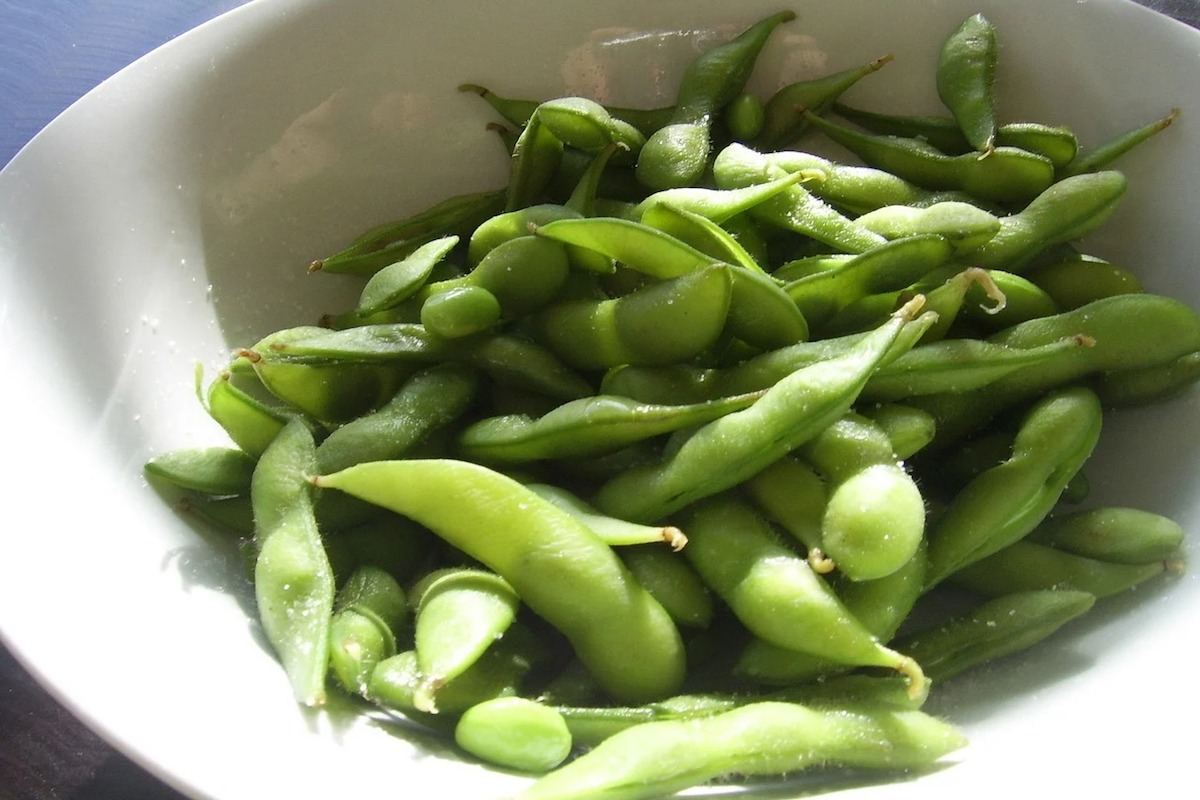Related to B vitamins, choline is an essential compound in the body that is vital for brain health and cognitive function. Although it doesn’t get as much attention as other vitamins or minerals, choline is crucial for maintaining memory, mood, and overall mental sharpness.
Since the body produces only a small amount of this nutrient, it’s important to get choline from dietary sources. Let’s look at some foods high in choline that can help support your brain health, enhance memory, and promote better cognitive function at any age.
What is choline?

Choline is an essential nutrient that plays a vital role in brain function, liver health, and muscle movement. The water-soluble compound is often grouped with B vitamins because it has similar features to vitamins in this group, such as niacin and riboflavin. Choline, however, is different and is crucial for a myriad of specific functions in the body.
Choline produces acetylcholine, a neurotransmitter involved in memory and mood regulation. The compound also supports the structure of cell membranes and helps with fat metabolism in the liver.
Your body can produce small amounts of choline on its own, but most of it comes through your diet through foods like eggs, fish, and certain vegetables.
What is the recommended daily intake of choline?

The National Institute of Health presents recommended choline intakes for different groups. The recommended intake for adult men and women is 550 milligrams (mg) per day and 425 mg per day, respectively. For adolescents (children aged 9 to 13), it’s 375 mg. For teenagers (ages 14 to 18), it’s 550 mg for boys and 400 mg for girls.
The institute also presents guidelines for much younger children. Children who are 6 months and under need 125 mg per day. Those born between 7 to 12 months ago need 150 mg daily. Children aged 1 to 3 need 200 mg. And finally, children between 4 and 8 need 250 mg every day.
What are the benefits of choline?

Supports cognitive function
Choline is vital for the production of acetylcholine, a neurotransmitter that plays a critical role in memory, learning, and mood regulation. Adequate choline intake may help improve focus and prevent cognitive decline as we age.
Promotes heart health
Choline helps regulate homocysteine levels in the blood. Elevated homocysteine can be a risk factor for heart disease, so adequate choline may contribute to better cardiovascular health and heart disease prevention.
Reduces pregnancy complications and helps in fetal development
Choline plays a significant role in brain and spinal cord development during pregnancy, reducing the risk of neural tube defects. It also supports overall fetal brain development and may improve cognitive outcomes for the newborn. Choline has also been proven to help reduce complications during pregnancy.
13 foods high in choline

- Eggs: One large egg contains about 147 mg of choline, which is nearly 27% of the daily recommended intake for women. Eggs are one of the most concentrated sources of choline and are easy to incorporate into various meals.
- Beef Liver: A 3-ounce serving of cooked beef liver provides around 356 mg of choline, which is more than half the daily requirement for most adults. This superfood is one of the richest sources of choline.
- Chicken Breast: One 3-ounce serving of roasted chicken breast offers 72 mg of choline. This lean protein is a versatile addition to any meal and provides a moderate amount of choline.
- Salmon: A 3-ounce serving of cooked salmon contains about 78 mg of choline. Along with its heart-healthy omega-3 fatty acids, salmon provides a decent amount of this essential nutrient.
- Soybeans: One cup of cooked soybeans contains approximately 107 mg of choline. This plant-based option is ideal for vegetarians and vegans seeking to boost their choline intake.
- Broccoli: One cup of cooked broccoli provides about 63 mg of choline. In addition to being high in fiber and antioxidants, broccoli is an excellent vegetable source of choline.
- Milk: One cup of whole milk contains around 38 mg of choline. Dairy products like milk can be a steady, small-scale source of choline throughout the day.
- Pork: A 3-ounce serving of cooked pork loin offers about 83 mg of choline. It’s a rich source of protein and provides a moderate amount of choline per serving.
- Shrimp: A 3-ounce serving of cooked shrimp contains approximately 115 mg of choline. This seafood option is low in fat and a good source of this vital nutrient.
- Peanuts: One ounce of peanuts provides about 15 mg of choline. Though the amount is modest, peanuts are a convenient snack to help meet your daily choline needs.
- Cauliflower: One cup of cooked cauliflower contains 48 mg of choline. As a low-calorie vegetable, cauliflower can be a great addition to any meal for a choline boost.
- Quinoa: One cup of cooked quinoa provides around 43 mg of choline. This grain is a good source of choline, fiber, and protein, making it an excellent choice for a balanced diet.
- Wheat Germ: One ounce of toasted wheat germ contains about 51 mg of choline. Wheat germ can be sprinkled on salads, smoothies, or yogurt to easily boost choline intake.
Signs of choline deficiency

Choline deficiency can lead to muscle damage, liver dysfunction, and neurological issues. Symptoms may include memory problems, fatigue, and difficulty focusing. In severe cases, choline deficiency can contribute to fatty liver and increased muscle breakdown.
Nonetheless, choline deficiency is rare, even though most people don’t eat up to the recommended amount. If you want to improve your choline intake, just try to eat more of the foods above, and you’ll be on your way to reaping the benefits of this important compound.
Frequently asked questions

What depletes choline?
Excessive alcohol consumption and poor diet can deplete choline levels. A lack of dietary sources rich in choline may also contribute to low levels over time.
Who is at risk of choline inadequacy?
Pregnant and lactating women and individuals with liver conditions are at higher risk of not getting enough choline, as their needs may be higher, or they might consume fewer choline-rich foods. Some evidence also shows that vegans and vegetarians may not obtain enough choline from their diet.
Is choline hard on the liver?
Choline is essential for liver health. In fact, a lack of choline can lead to fat accumulation in the liver, which may cause liver damage over time. Adequate intake supports proper liver function. Too much choline, however, could cause liver toxicity, but it is highly unlikely that one consumes enough to cause this problem.




